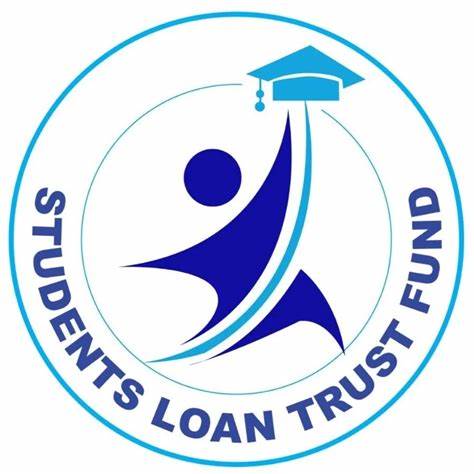Under the auspices of the Women’s wing of the Local National Union of Ghana Students (NUGS), the CEO of SLTF delivered a keynote address to officially launch the University of Education, Winneba – Kumasi campus, local NUGS week under the theme: “Empowering today’s Woman for a better tomorrow”.
The CEO was also awarded by the Students’ organization for her meritorious service at the Students Loan Trust Fund.
In attendance were: the Registrar, women who have distinguished themselves in both the public and private sector and distinguished men who support the “Women’s Agenda”.
STATEMENT BY: MRS SHEILA NAAH BOAMAH, CHIEF EXECUTIVE OFFICER STUDENTS LOAN TRUST FUND (SLTF) AT THE LOCAL NUGS WEEK OF UNIVERSITY OF EDUCATION WINNEBA, KUMASI CAMPUS.
DATE: MONDAY 23RD MARCH 2015
THEME: EMPOWERING TODAY’S WOMAN FOR A BETTER TOMORROW
Mr. Chair, Dean of Students & Members of Staff present, Dignitaries and colleague guest speakers, NUGs President and Executives, Representatives of the Local NUGS & SRC, Distinguished ladies and gentlemen, All protocol observed, Good morning.
Thank you for inviting me to speak on this very important subject of empowering women for a better tomorrow.
The topic is not only relevant to the evolution on the women’s front but also critical and practical. I am delighted to be part of this, Thank you Commissioner Anita and her team.
According to the statistics:
- 1/2 of the world’s population is made up of women,
- 66% of the global work force is made up of women
- 60-80% of manufacturing workforce in developing countries, Ghana included, is made up of women, and
- 50% -70% of global food production is by women.
Women contribute significantly to the development of mankind and therefore the call for empowering women over a hundred years ago is a call still worth pursuing until it is fully obtained.
Globally, and in Ghana, women are decision-makers for themselves, their families, villages, businesses, and governments. In societies where this is not the case, people speak of the need for women’s empowerment.
Permit me Mr. Chairman, to refer to two important statements that were issued by very important global leaders on the subject.
In celebration of the 100th year of International women’s day on the 8th of March 2011 UN Secretary-General Ban Ki-moon said: “One hundred years ago, when the world first commemorated International Women’s Day, gender equality and women’s empowerment were largely radical ideas. On this centenary, we celebrate the significant progress that has been achieved through determined advocacy, practical action and enlightened policy making. Yet, in too many countries and societies, women remain second-class citizen. It is only through women’s full and equal participation in all areas of public and private life can we hope to achieve the sustainable, peaceful and just society promised in the United Nations Charter.”
The UN Women’s Executive Director Michelle Bachelet, also said on the day that: “A hundred years ago today, women across the world took an historic step on the long road to equality…. Although the occasion was celebrated in only a handful of countries, it brought over one million women out onto the streets, demanding not just better conditions at work, but also the right to vote, to hold office and to be equal partners with men. “The agenda to secure gender equality and women’s rights is a global agenda, a challenge for every country, rich and poor, north and south…. I have seen myself what women, often in the toughest circumstances, can achieve for their families and societies if they are given the opportunity. The strength, industry and wisdom of women remain humanity’s greatest untapped resource. We simply cannot afford to wait another 100 years to unlock this potential.”
It is therefore commendable and relevant that you have begun discussion on how to achieve greater empowerment for women.
In preparing for this very important event, I came across many interesting dimensions to the subject of empowering women. I also saw many definitions for the word, “empowerment” but amongst the many I chose to use the one that define Empowerment as; “The process of obtaining basic opportunities for marginalized people, either directly by those people, or through the help of non-marginalized, others who share their own access to these opportunities.
It also includes actively thwarting attempts to deny those opportunities. Empowerment also includes encouraging, and developing the skills for self-sufficiency, with a focus on eliminating the future need for charity or welfare in the individuals of the group.
This process can be difficult to start and to implement effectively.” Mr. Chairman, Distinguished Ladies and Gentlemen, Empowering women can take many forms. Women can be empowered politically/executive, economically, culturally and socially. Indeed, these forms of women’s empowerment are not mutually exclusive but rather mutually reinforcing. In fact, around the world, it is common knowledge that the higher you go the fewer women you have at the top and the reverse is true.
Mr. Chairman, I am not sure what the statistics for Ghana will be but between my mother’s generation and mine, a lot of progress will be recorded. The current gender parity at the tertiary level is 63:37. That is, of our total tertiary enrolment of about 380,000, 63% are male and 37% are female. The vision for the education sector is to attain a gender parity ratio of 50:50.
In light of this gap and peculiar social norms how can we as stakeholders ensure that the movement to empower woman continues to build momentum? How do we position ourselves as women to take up the responsibility of being empowered without distorting the fine aspects of our unique cultural identity and what are the real barriers to women empowerment in Ghana. Drawing from my personal encounters in life I will attempt addressing some of these issues. To be empowered as a woman you need;
- Education or the right talent/skills. In addition to education and or skills/talent we need
- Work on improving our self-worth,
- Work on building our confidence,
- Learn to sit at the table, and
- Put ourselves up for opportunities and when the doors open for us we must endeavour to excel, through innovation and creativity, share our stories, mentor people who need us and support other females to climb the ladder of empowerment. It is only when we as women do some of the above that we give society reason to empower more women.
In our context the major barrier to women empowerment is cultural, which translates socially in our everyday world. Culturally we are brought up to believe that the place of a women is by the side of a man; that too much education or wealth will make a woman less appealing to men; that a way to the man’s heart is through his stomach and so, whilst our brothers sit with the elders and part-take in important meetings we learn to cook and clean.
My sisters, haven grown up in an environment with strong gender roles, it’s not surprising that we act and think the way we do. It’s not surprising that we are engrossed with promoting our sexuality rather than our intellect/talent, it’s also not surprising that we think the men should lead and we just follow even when we are better equipped than them.
I am happy we are talking about it, because advocacy is a key tool for overcoming the issue. Gaining social empowerment can also be difficult because it involves ‘mindset’ and ‘orientation’. In Ghana, advocacy, affirmative actions, laws, public policy, and education are a few of the ways governments, Civil Society, gender activities and other stakeholders are trying to address the issue of empowering women. Indeed, the Beijing conference of 1995 has also been instrumental in progress chalked thus far. Let’s add up to progress made globally by worrying less about how we look and worry more about what we know or can learn. After all, trust me, looks don’t last forever but knowledge or skill will. Let’s work to overcome timidity, let’s acquire knowledge and most importantly let’s believe in ourselves even if no one believes in us. Once you break through, people will start accepting you. Eliminating a significant part of a nation’s work force on the sole basis of gender can have detrimental effects because women represent most of the world’s poor population. It is critical that we embrace the era of empowering women now, especially for us in developing countries where it can be a key to unlocking poverty. A study conducted by fortune 500 found that of fortune 500’s companies, “those with more women board directors had significantly higher financial returns, including; 53 percent higher returns on equity, 24 percent higher returns on sales and 67 percent higher returns on invested capital.
I am sharing this to allay the fears of those who have doubts about the technical capabilities of a woman. I am also sharing this because according to the statistics, of the
- 190 heads of state only 9 are women.
- Only 14-16% of women are on Boards of companies or corporations
- Only 3-4% of women are CEOs/Chairpersons
- Only 5% of women are in executive position.
I am sharing the study because Women in developing countries produce 70% of the food but own only 2% of land;
I am sharing the study because 2/3 of men executive have kids and only 1/3 of women executives have kids.
I am sharing the study because we cannot do this without the support of the men.
Thank you.





